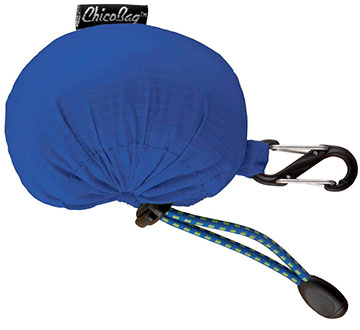 |
Previous Issues |
| Cedar Mill Community Website |
|
Search the Cedar Mill News: Search the Cedar Mill News
|
About The Cedar Mill News |
|
|||||||
| Volume 16, Issue 12 | December 2018 |
||||||
Sustainable Resolutions for 2019
|
|||
 |
Usually, we have a pretty good idea of the outcome we want from changing a habit, like not using those pesky plastic grocery bags. We think to ourselves, “Ok, I'll stop that habit of taking the plastic bag.” We load up the car with lots of durable bags. Maybe we place a sticker by the garage door (both very helpful ideas by the way). But time and again we end up in line without those bags. Why? Because we've actually been trying to change the wrong habit. All of those efforts were aimed at changing the habit of putting bags into the car. None of them help get the bags into the store.
When I wanted to change this habit and wasn't succeeding, I took a look at what happens when I get to the store. Usually, I'm squeezing it in between other errands on one big efficient trip. I'm in a hurry and parking takes forever. I grab my keys and if I'm lucky, my list. Lock the door, dash in and shop. Looking at it that way, I realized that the habit I needed to change was leaving the bags in the car in a hurry. And the easiest way to change that was to tie taking in the bags to a habit I already had—locking the car. In my case, I did that literally by putting a Chico style bag on my key chain. But habits can also be stacked in less literal ways. So look to where the habit hasn't been working, investigate what you are actually doing, and target the change to fit your own real life.
The role of willpower in habit change is generally overrated. Worse, if our resolve “fails,” we blame ourselves and feel guilt or shame. That harsh self judgment isn't very motivating, and what's more, it just isn't fair. Your brain does not run on willpower, and understanding how it functions can help you design a smarter, more successful habit change.
Did you know that your brain is actually wired to rely on habits most of the time instead of conscious thoughts? Conscious thinking is great for solving new problems and winning chess matches. It is also slow and energy intensive. When you've come to the same conclusion and action through conscious thought enough times, your brain is efficient enough to create a faster, less energy intensive shortcut.
Habits are shortcuts that happen in the blink of an eye, and our brains rely on them for many day-to-day functions, freeing up mental resources for winning more chess matches. So, instead of fighting it, go with the flow. Figure out the habits you already have and simply tweak them. Or, get ready to practice training your brain to make a new habit through repeated conscious choice. Just don't beat yourself up for hiccups on the way.
It turns out that—from football players to tennis champions—an athlete's real job is to form new habits and break bad ones. In this way, they are ready to respond amazingly quickly to their opponent's plays. Players work hard to develop good habits, and they have a lot of help in doing it. Here are some of their tricks you can steal:
• Recruit a knowledgeable coach to cheer you on and give advice when things aren't going so well. This could be professional like a doctor or trainer, or a friend who has been through it before. Even self-help books can be a great guide.
• Write your play book. Work with your coach and reference material to find the very best plays for your game. Anticipate the offense with great defensive strategies for handling setbacks and obstacles. Plan times for rest and training, as well as rewards. And remember: the playbook isn't set in stone. Improvise when needed and add new plays to the book regularly.
• Build your team. Social support for habit change is a powerful tool. Whether it's a neighbor who will walk to the store with you instead of driving, or a group online discussing ways to reduce reliance on single use plastic, your supporters can offer you distinct habit change advantages. They will help keep you accountable in a gentle, supportive way. They might even provide some positive peer pressure. They will remind you that you aren't in it alone, and if they are making the same change, might help you see a bigger collective impact that is truly inspiring.
Now, of course, you can use these tips to tackle any change, any time of year. If you are looking for an improvement that benefits our community and supports sustainability, here are a few to try:
• Move toward a low impact diet with meatless Mondays
• Check the urge to turn up the heat and turn towards sweaters, socks and blankets first
• Swap some drive-alone trips for walking or bicycling when the distance isn't too far
• Take five-minute showers to reduce water waste up to 60%.
And of course, there are always those darned grocery sacks! Whatever you chose to work on, thank you for your efforts to build a more sustainable community. Have a happy, low impact 2019!
![]()
Like us on Facebook for timely updates
Published monthly by Cedar Mill News LLC
Publisher/Editor:Virginia Bruce
info@cedarmillnews.com
PO Box 91061
Portland, Oregon 97291
© 2018